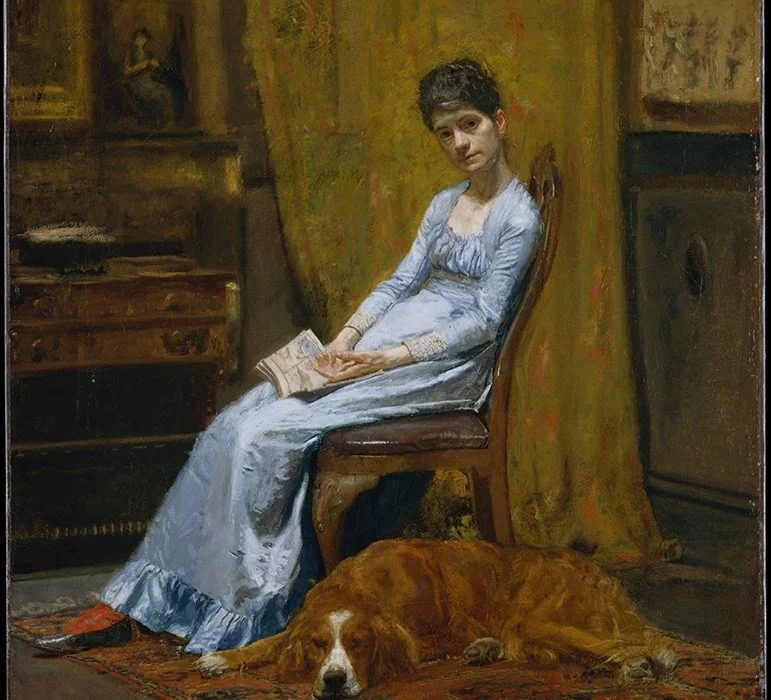Relationships • Compatibility
The Repetition Compulsion
One of the most remarkable ideas in the history of psychoanalysis is to be found in Freud’s 1920 paper ‘Beyond the Pleasure Principle’. Here, the founder of psychoanalysis begins with a prescient observation about human beings: though one would expect them always to try to maximise their pleasure and minimise their pain, they are regularly to be found heading towards situations that repeat, to an uncanny degree, varieties of distress and agony they knew in childhood.
For example, a woman whose first decade was marred by the outbursts and rages of an alcoholic father will – without quite noticing what she is doing, and at huge cost to herself – be drawn to a succession of men who drink too much. Or a man who had a sarcastic and withholding mother will – willy-nilly – find himself marrying the very sort of woman who, though different from his parent in outward appearance, mirrors her tone of meanness and neglect.

Freud introduces a crucial term to capture this paradoxical behaviour: in German the Wiederholungszwang, translated into English as ‘the repetition compulsion’.
Why We Repeat the Pain
Why are we compelled to repeat sufferings in this way? Why can’t we – the victims of poor childhood treatment – make our way towards kindly and nurturing lovers in adulthood? Why do we privilege pain over pleasure?
Freud’s answer is as nuanced as it is hopeful. It is not, as we might think, that we are simply trying to suffer as we once did, ad infinitum. We aren’t bluntly in love with the pain we were taught to expect. We aren’t heading for distress for its own sake. There is an important (though generally unknown to us) intent behind our apparent folly.
In Freud’s eyes, what we are trying to do is repeat an old story with one important caveat: we are seeking to give it a different ending. We aren’t looking to get stuck in endless loops of pain; we’re trying to go back to the source of a difficult dynamic and – with our adult faculties at our disposal, with the full resources that we can now marshal – reach a new and more satisfying conclusion.
The daughter of an alcoholic, for example, wants to find someone with an incipient drinking problem, not in order to suffer without end, but to help him stop drinking, explore the roots of his addiction, listen to her reasoning, benefit from her kindness and heal himself under her watch. Similarly, a man wants to find a woman who is as shut off and as cold as his mother, not in order to be ignored until his last days, but to work with this mother-like woman to determine what it was about her childhood that made her like this and gently turn her towards love, reliability and gentleness. Sufferers who are now in command of reason, money, resources, charm and composure, deep down hope that they can heal the very sort of people at whose mercy they once were – and whom, in their childhood hearts, as they wept softly in their little rooms, they had so longed to assist and reform.
The Hope Behind the Repetition Compulsion
In this picture, what human beings really long for isn’t joy pure and simple (or indeed unceasing grief) but repair, recovery and restitution. We don’t want simple kindness and goodness; we are driven to seek understanding from our enemies and a form of trans-generational atonement from our wrongdoers. Freud might have called it ‘the repair compulsion’.
This explains why we are rarely very interested in people who have none of the problems of our early caregivers – however sweet and physically beguiling they might be. We might go on dates with them, but are always likely to register that we can’t find them attractive. We label them nice but ‘a bit boring’, or lovely but somehow, despite ourselves, ‘unsexy’. By which we really mean: not sufficiently afflicted by the psychological issues that we are on a hidden mission to explore and heal.
Freud didn’t hope that his patients could simply stop being attracted to people who shared painful patterns with their early caregivers. He hoped they would become aware of the unconscious hopes behind their repetition compulsion, and then turn actively towards the challenges of finding different, more satisfying endings. In the Freudian schema, we aren’t conclusively looking to suffer; we are looking to heal the sorts of wounded people who tormented us before we had the capacity to stand up to them – and help them.


























